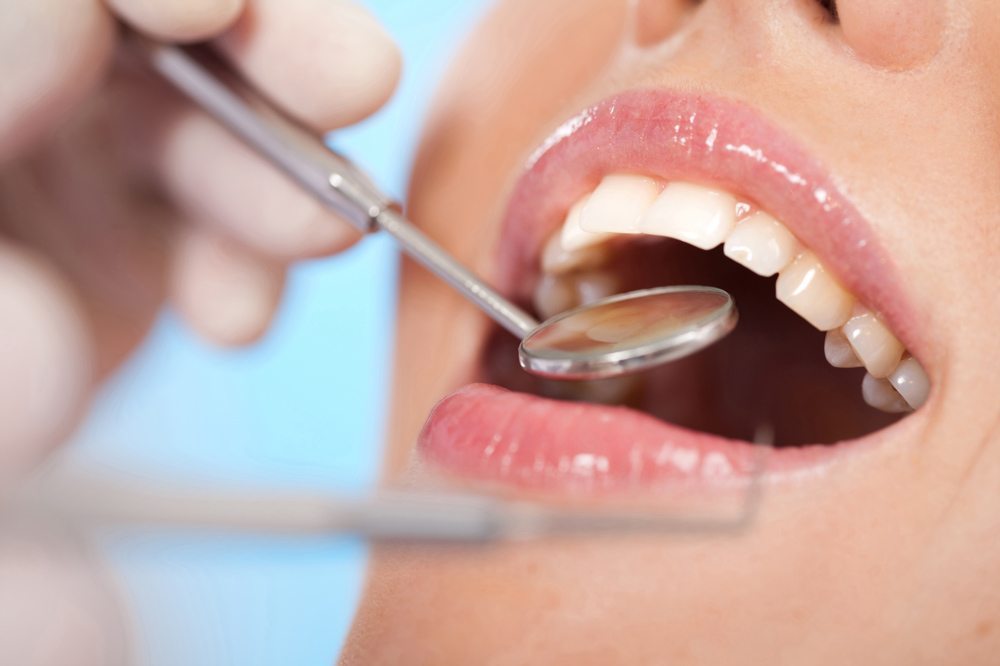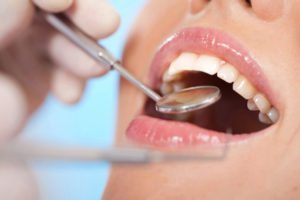Study Finds Treatment for Gum Disease Lowers Risk of Heart Disease

 When it comes to receiving quality dental care in Newberg, Oregon, it’s become clear that what happens in our mouths greatly impacts our bodies as a whole. As more research continues to explore the connection between mouth and body, studies have found a number of chronic health conditions that have direct links to oral disease. In recent years, researchers have found compelling links between gum disease and such health conditions as heart disease, obesity, diabetes, stroke and cancer. Considering these links, it’s not surprising researchers have now begun to discover that treatments for gum disease could also potentially reduce the risk of other chronic health conditions.
When it comes to receiving quality dental care in Newberg, Oregon, it’s become clear that what happens in our mouths greatly impacts our bodies as a whole. As more research continues to explore the connection between mouth and body, studies have found a number of chronic health conditions that have direct links to oral disease. In recent years, researchers have found compelling links between gum disease and such health conditions as heart disease, obesity, diabetes, stroke and cancer. Considering these links, it’s not surprising researchers have now begun to discover that treatments for gum disease could also potentially reduce the risk of other chronic health conditions.
According to researchers at the University of Sydney, a routine non-surgical gum disease treatment can greatly reduce the thickness of arterial walls in the heart, a known risk factor for heart disease.
An innovative study never before attempted among Aboriginal Australians, these findings may offer a significant degree of hope among Aborigines, who typically suffer from poor oral health and high rates of cardiovascular disease, and other high risk groups.
Published recently in the journal Hypertension, the study found a significant decrease in the thickness of carotid arterial walls after just one session of gum disease treatment. The study suggests that a non-surgical periodontal therapy offers the chance to significantly reduce the thickening of carotid arterial walls in just a one-year period. The size of the reduction in arterial wall thickness in the treatment group involved in the study, versus that of the control group, was similar to what other additional studies have noted in other high risk groups.
The results of the gum disease treatment is similar to a 30 percent decrease in low-density lipoprotein cholesterol – typically referred to as “bad” cholesterol – which is known to decrease the risk of heart disease, according to researchers.
Exploring New Territory
The study was inspired by growing research that indicates a causative relationship between atherosclerotic vascular disease and periodontal (gum) disease, and ranks as one of the first to investigate whether treatment for periodontal disease may have any effect on the risk of heart disease using a randomized trial.
An inflammatory disease, periodontal disease attacks the hard and soft tissue and bone structures that support teeth. During the disease’s early stages, the gums become swollen and red due to the effects of inflammation, which is how the body naturally responds to the presence of harmful bacteria. During the most serious stage of the disease (periodontitis), the gums begin to recede away from the base teeth and the supporting tissues are destroyed. Bone erodes away, and teeth begin to loosen or eventually fall out.
Atherosclerosis ranks as the most frequent cause of strokes, heart attacks, and peripheral vascular disease – commonly known as cardiovascular disease. The condition typically causes no visible signs or symptoms until middle or old age but as the hardening and narrowing of arteries continues, blood flow is slowed, which results in pain and additional potentially life-threatening complications.
Despite the reduction in arterial wall thickness, the study found no evidence that the gum disease treatment had any effect on arterial stiffness, another known risk factor for cardiovascular disease. While future studies may help to determine whether more aggressive forms to gum disease treatment may improve arterial stiffness, researchers are excited and hopeful about what this latest discovery could mean for the health of millions of people around the world that suffer from an increased risk of heart disease.
Protecting Your Oral Health
At when it comes to giving her patients the kind of quality dental care in Newberg, Oregon they deserve, Dr. McLeod strives to not only protect the long-term health of our patients’ teeth and gums but to help improve their overall health as well. What studies like these tell us is that what happens to our oral health matters, and could serve as an indication of what our overall health may be like in the future.
To protect, maintain, and improve your oral and overall health, it’s imperative you schedule regular exams and cleanings. Exams provide Dr. McLeod with the opportunity to spot the early signs of dental disease while still easily treatable and reversible. Regular cleanings allow our team of gentle dental hygienists with the chance to remove plaque from the surface of your teeth and along the gum line before decay and gum disease can develop.
While you might not always enjoy visiting the dentist, know that every appointment at Newberg Family Dental helps to improve your health now and into the future.
